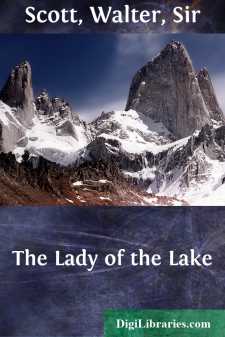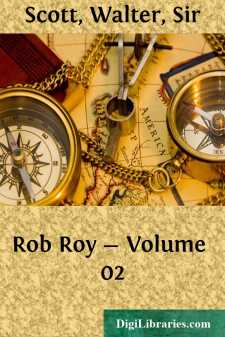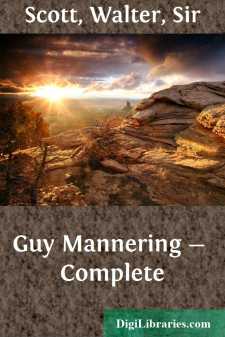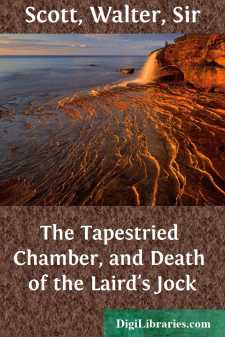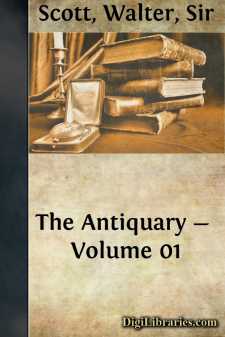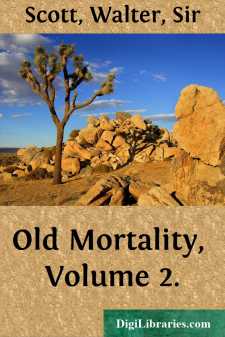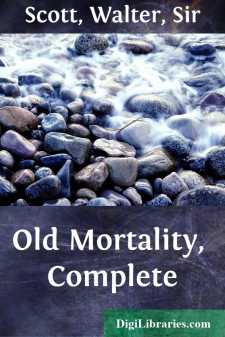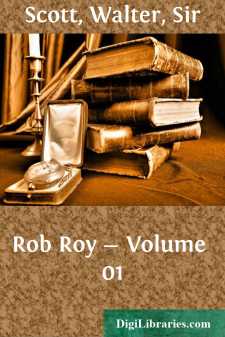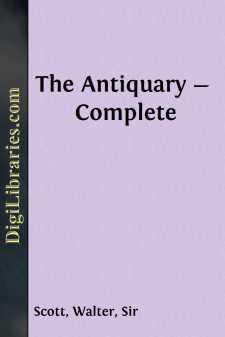Categories
- Antiques & Collectibles 13
- Architecture 36
- Art 48
- Bibles 22
- Biography & Autobiography 813
- Body, Mind & Spirit 142
- Business & Economics 28
- Children's Books 16
- Children's Fiction 13
- Computers 4
- Cooking 94
- Crafts & Hobbies 4
- Drama 346
- Education 46
- Family & Relationships 57
- Fiction 11829
- Games 19
- Gardening 17
- Health & Fitness 34
- History 1377
- House & Home 1
- Humor 147
- Juvenile Fiction 1873
- Juvenile Nonfiction 202
- Language Arts & Disciplines 88
- Law 16
- Literary Collections 686
- Literary Criticism 179
- Mathematics 13
- Medical 41
- Music 40
- Nature 179
- Non-Classifiable 1768
- Performing Arts 7
- Periodicals 1453
- Philosophy 64
- Photography 2
- Poetry 896
- Political Science 203
- Psychology 42
- Reference 154
- Religion 513
- Science 126
- Self-Help 84
- Social Science 81
- Sports & Recreation 34
- Study Aids 3
- Technology & Engineering 59
- Transportation 23
- Travel 463
- True Crime 29
Walter Scott
Sir Walter Scott (1771-1832) was a Scottish novelist, poet, historian, and biographer who is considered one of the most influential figures in Scottish literature. He is renowned for his historical novels such as "Ivanhoe," "Rob Roy," and "Waverley," which romanticized Scottish history and folklore. Scott's works played a significant role in the development of the historical novel genre and had a lasting impact on literature and cultural identity in Scotland.
Author's Books:
Sort by:
by:
Walter Scott
Preface When I first saw Mr. Osgood's beautiful illustrated edition of The Lady of the Lake, I asked him to let me use some of the cuts in a cheaper annotated edition for school and household use; and the present volume is the result. The text of the poem has given me unexpected trouble. When I edited some of Gray's poems several years ago, I found that they had not been correctly printed for...
more...
by:
Walter Scott
CHAPTER FIRST And hurry, hurry, off they rode,As fast as fast might be;Hurra, hurra, the dead can ride,Dost fear to ride with me?Burger. There is one advantage in an accumulation of evils, differing in cause and character, that the distraction which they afford by their contradictory operation prevents the patient from being overwhelmed under either. I was deeply grieved at my separation from Miss...
more...
by:
Walter Scott
The Novel or Romance of Waverley made its way to the public slowly, of course, at first, but afterwards with such accumulating popularity as to encourage the Author to a second attempt. He looked about for a name and a subject; and the manner in which the novels were composed cannot be better illustrated than by reciting the simple narrative on which Guy Mannering was originally founded; but to which,...
more...
by:
Walter Scott
CHAPTER I: THE CONTRAST Look here upon this picture, and on this,The counterfeit presentment of two brothers. HAMLET The latter part of the fifteenth century prepared a train of future events that ended by raising France to that state of formidable power which has ever since been from time to time the principal object of jealousy to the other European nations. Before that period she had to struggle for...
more...
by:
Walter Scott
THE TAPESTRIED CHAMBER; OR, THE LADY IN THE SACQUE. The following narrative is given from the pen, so far as memory permits, in the same character in which it was presented to the author's ear; nor has he claim to further praise, or to be more deeply censured, than in proportion to the good or bad judgment which he has employed in selecting his materials, as he has studiously avoided any attempt...
more...
by:
Walter Scott
INTRODUCTION The present work completes a series of fictitious narratives, intended to illustrate the manners of Scotland at three different periods. Waverley embraced the age of our fathers, Guy Mannering that of our own youth, and the Antiquary refers to the last ten years of the eighteenth century. I have, in the two last narratives especially, sought my principal personages in the class of society...
more...
by:
Walter Scott
CHAPTER I. And look how many Grecian tents do standHollow upon this plain—so many hollow factions.Troilus and Cressida. In a hollow of the hill, about a quarter of a mile from the field of battle, was a shepherd's hut; a miserable cottage, which, as the only enclosed spot within a moderate distance, the leaders of the presbyterian army had chosen for their council-house. Towards this spot Burley...
more...
by:
Walter Scott
As I may, without vanity, presume that the name and official description prefixed to this Proem will secure it, from the sedate and reflecting part of mankind, to whom only I would be understood to address myself, such attention as is due to the sedulous instructor of youth, and the careful performer of my Sabbath duties, I will forbear to hold up a candle to the daylight, or to point out to the...
more...
by:
Walter Scott
INTRODUCTION—-(1829) When the author projected this further encroachment on the patience of an indulgent public, he was at some loss for a title; a good name being very nearly of as much consequence in literature as in life. The title of Rob Roy was suggested by the late Mr. Constable, whose sagacity and experience foresaw the germ of popularity which it included. No introduction can be more...
more...
by:
Walter Scott
CHAPTER FIRST. Go call a coach, and let a coach be called,And let the man who calleth be the caller;And in his calling let him nothing call,But Coach! Coach! Coach! O for a coach, ye gods!Chrononhotonthologos. It was early on a fine summer's day, near the end of the eighteenth century, when a young man, of genteel appearance, journeying towards the north-east of Scotland, provided himself with a...
more...


